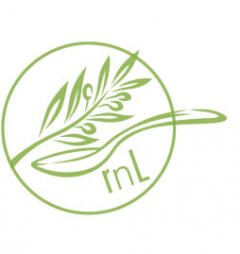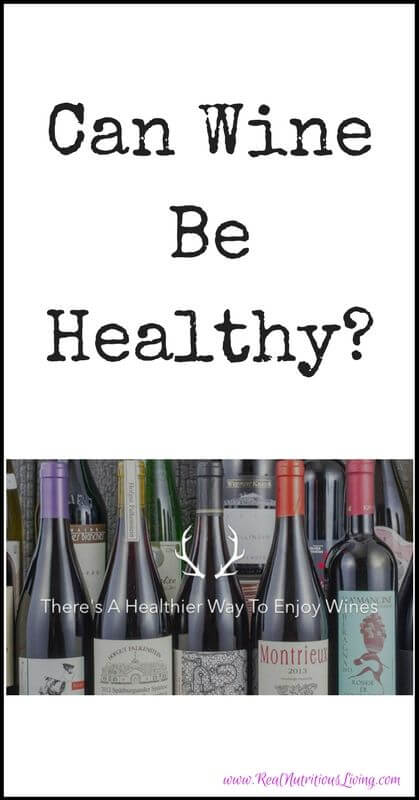My husband and I enjoy wine. After a week of work, kids, cooking, laundry, and all of the craziness that life brings, we thoroughly enjoy our wine on the weekends! It has always been our healthy drink of celebration, and history agrees with us: for more than 8,000 years, wine has been a naturally made beverage and a symbol of celebration, culture, art, and even religion. Wine is especially toasted around the holidays with family and friends.
This is why I was SO EXCITED to learn about a new ketogenic wine!! Dry Farm Wines has become our go-to. We have a subscription to 5 bottles every other month! I don’t even have to go to the store anymore!
Why Alcohol Doesn’t Have a Nutrition Label
I recently learned that nearly all the wines produced and sold commercially are industrially farmed with chemicals and produced with dangerous and unhealthy additives in the winemaking process. This includes the use of genetically modified commercial yeast (GMO) in fermentation, added sugar, and dyes like Ultra Red and Mega Purple.
Most of us have no idea what is really in wine because the wine industry spends millions of dollars of lobby money each year to keep contents and nutritional labeling off of wine.
In fact, alcohol is the only major food group without a contents label!
And, what we don’t know, because it isn’t labeled, is that the alcohol content of many wines is going up!
The American Association of Wine Economists tested the alcohol levels of tens of thousands of wines between 1992 and 2009. They saw a surprising trend. Alcohol levels jumped from an average of 12.7% in 1992 to 13.8% in 2009. Today, it’s over 14%. In fact, it is not uncommon to see 17%+ in commercial wines.
This increase is much greater than can be explained by any change in climate, and the researchers concluded that “the rise in alcohol content is primarily man-made.” This means wine producers are making higher alcohol wines on purpose, but while alcohol levels are going up, the alcohol percentage listed on bottles isn’t.
And winemakers don’t have to label this either! In fact, if a wine has 14% alcohol or below, it can be labeled 1.5% less than or greater than it’s actual amount. If it’s above 14%, it’s allowed a 1% variation. This means a wine labeled 13.5% could actually have 15% alcohol.
The reason for this is simple: money. The higher the alcohol level, the more the wine producer pays in taxes. Producers are, therefore, incentivized to make wines with higher alcohol (that’s what many buyers want and they are more addictive) and label them lower (to save the wine producer money).
Finding Lower Alcohol Wines
This is the reason I have made the choice to only drink lower alcohol wines. Today, I only drink wines from Dry Farm Wines. Their wines taste better and are clean, additive-free, organically farmed, fermented with wild native yeasts, and 100% natural. All are produced by small family farms in Europe.
They are also the only wine merchant in the world who does independent lab testing on every wine they sell and places a cap on alcohol. All the wines they sell are between 9% and 12.5% alcohol.
One other point of interest to me: Dry Farm Wines are also sugar-free. Most commercial wines contain added sugar or dyes. As consumers, we have no way of knowing this because there is no nutritional labeling on wines. And because of the acid in wine, you cannot always taste the sugar.
Bottom line: alcohol is dangerous and toxic in large amounts… but can be beneficial in moderation!
Research shows that endorphins are released when you consume alcohol. These are the same “feel good” chemicals that are released when you laugh, dance, or exercise. In a proper dose, this elevates our mood and heightens our joy of the moment. But when too much is consumed it is easy to slide down the slippery slope of over-consumption. The higher the alcohol, the higher the risk.
We have also heard and read of the many health benefits of the moderate consumption of wine. Nearly every single Blue Zone – the regions with the longest-living people – has moderate daily alcohol consumption as part of its culture. In most cases that alcohol is wine, grown naturally the way it has been for centuries.
A daily glass of natural wine with historically lower alcohol levels seems to keep people thriving well into old age.
Stick to Low-Alcohol Wines if You Drink!
If you enjoy wine, I encourage you to stick to low alcohol, natural wines made the way wines have been historically enjoyed for centuries.
My source for these wines is Dry Farm Wines because I trust their testing and know that they only send low-alcohol, lab-tested wines. As a celebration of holiday health and wellness, Dry Farm Wines is offering my readers an extra bottle of wine for 1 penny with your first order, plus always free shipping.
Order here to get an extra bottle of low-alcohol wine!
PS…this is the perfect drink to go with the grass-fed beef I have delivered monthly. I may never shop again!
CLICK HERE to Pin this Post:
Melissa Schollaert is a Holistic Health & Nutrition Counselor and founder of Real Nutritious Living. Helping others achieve their health goals to attain their healthiest, happiest life is her greatest ambition.
PAID ENDORSEMENT DISCLOSURE: In order for me to support my blogging activities, I may receive monetary compensation or other types of remuneration for my endorsement, recommendation, testimonial and/or link to any products or services from this blog. However, I only recommend products or services I have personally used myself and trust. MEDICAL DISCLAIMER: This content is not intended to diagnose or treat any disease, or as a substitute for medical advice. Please consult with your advising physician before starting any treatment for a medical condition. Real Nutritious Living, LLC shall not be held liable or responsible for any misunderstanding or misuse of the information contained on this site or for any loss, damage, or injury caused or alleged to be caused directly or indirectly by any treatment, action, or application of any food or food source discussed on this site.


I never even thought about a keto wine!! Good to know there is a better choice out there!
YES! Options are good!
I’ve heard so many great things about Dry Farm wines and I really wanna try it. Thanks for all the great info!
Yes, you have to give them a try!
I had never thought about keto wine. Good to have options.
I love options 😉
This is such great insight (and lucky for me, because I do like a nice glass of wine). I can’t wait to try Dry Farm wines. Sounds like an awesome product!
I am with you Irena. Enjoy!
I’ve always thought it was crazy that alcohol doesn’t have to list ingredients or nutrition facts. It’s nice to know there’s a healthy option with clean ingredients!
I completely agree! YES!
Interesting! Haven’t heard of Dry Farm wines before – will definitely check them out!
You must try them Tina! #gamechanger
Yes! Only wines I can drink without having a horrible headache or reating!
Yay, so glad you’ve tried it!
Thanks so much ! I always learn so much from reading your articles. My husband loves wine so I’ll share it with him !
You’re so very sweet! Thank you for sharing!
Great article!
Thank you!
Thanks for all the great info, I’ve heard a lot about added sulfites to wines being imported into the States, but I didn’t know anything about dyes and GMO yeasts, (although not surprising I guess). I can’t wait to try this out though because while I love wine, I try and keep my consumption to a minimum because I don’t feel as good when I drink it, so thanks again!
Yeah, it is some scary business!It’s nice to know even when we don’t drink much, we have some healthier options!
Great article! I’m seeing quite a few low alcohol wines coming out here in the UK too, so it’s good for those of us (me!) who are really sensitive to it. Good to know!
Isn’t the availability of healthier items so awesome?!